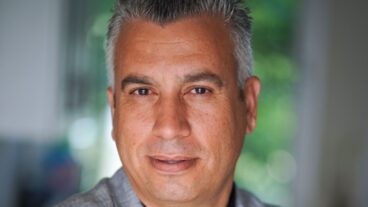‘Cooperation for Energy Independence of Democracies in the 21st Century’ will focus on the significance of sustainable and renewable energy to the long-term economic stability of the U.S. and Israel.The main global focus of the 21st century is going to be the search renewable, sustainable energy systems, and the battle line on the issue is going to be drawn between democracies and tyrannies.
This assessment provided the impetus for the American Jewish Congress, together with the US Department of Energy and the Israel Ministry of National Infrastructure, to organize an Energy Indepence conference this August in Jerusalem which they hope will be a launching pad for a program that will enhance and secure both countries’ energy futures.
According to the director of the project, David Haberman, the conference , called ‘Cooperation for Energy Independence of Democracies in the 21st Century’ – will focus on the significance of sustainable/renewable energy to the long-term economic stability, environment, quality of life, and global competitiveness of the US and Israel.
“Our aim is for the US and Israel in the near future to deploy enough renewable, sustainable energy systems in Israel to demonstrate the benefits of using non-fossil combustion based systems in order to develop a market showcase of the different technologies, products and approaches to solving the energy requirements,” he said during a recent visit to Israel.
“Part of our thesis is that Israeli is a perfect venue to deploy these technologies and demonstrates the benefits sooner and more adroitly than we could do in the US,” he adds, citing the Arrow missile project as an example of US and Israel teamwork that came to fruition in Israel more quickly than it would have if it had been developed in the US.
Haberman explains that the reliance on fossil fuels controlled by hostile or indifferent countries is a destabilizing danger to the two countries and to all democracies.
“Our conference stresses democracies in the 21st century. The reason is driven from the fact that most oil is controlled by tyrannies with no commonality in our societal prioroites. In the short, mid and long term, they will be doing nothing to help the national security or quality of life of Israel or US or any of its democratic allies. If free people want to stay free, they use technology and innovation to stay free and not be vulnerable to the manipulations of markets or supply,” says Haberman.
The mission statement of the conference sets this policy out further: “Dependency on uncertain and interruptible energy supplies from Middle Eastern states is a crucial strategic issue that must be resolved to assure the long-term security of Israel, the United States and the world’s other democracies. The importation of these critical fossil fuels (oil, coal, natural gas) is vulnerable to economic as well as physical attack. The world’s democracies spend billions of dollars each year trying to protect access to these resources. In addition, the petrodollars that the suppliers receive often end up being used for purposes inimical to the interests of the world’s democracies; these funds are used to purchase weapons, to support the spread of radical Islamicist thought, and to finance the spread of terrorism. For all of these reasons, reducing dependency on fossil fuels is a critical and timely challenge for the world’s democracies.”
Haberman says the conference will plan series of tasks and goals that can be accomplished in the near term to develop electricity and transportation fuel in Israel, and use it in Israel, so that US consumers and a world market of customers can see its success
“Our aim is to use Israel as validation venue of putting forward what can be achieved. There’s a world market of similar societies that face the same challenges. We’ve invited to the conference representatives from democracies friendly to to Israel and American that will do business with them – places like Turkey, Australia, India, the UK, and Japan,” says Haberman.
Congressman Tom DeLay from Texas, a supported of the conference and its goals says, “There is a common bond of American and Israeli immediate and long-term interests, which necessitates cooperation in numerous fields of energy research. Some of these fields include research and development projects, trial studies, and barrier reduction efforts in infrastructure adaptation of renewable and sustainable energy.
I commend the Department of Energy for its participation and sponsorship of the conference. I will continue my active support of this initiative by reviewing the consensus resolution created at this conference. In addition, I will work to support policies that enable the Department of Energy to pursue activities and working groups that emerge as a result of this conference.”
Haberman sees the US-Israeli joint application of modern technology strengths in the form of a “Manhattan Project” – type undertaking, to provide alternative energy to our societies in a manner that displaces fossil fuel use. The objective is independence from economic attacks, supply disruption risk, pollution, public health deterioration, and preservation of a high quality of life.
The conference is going to bring together top US officials including David Garman, the Assistant Secretary of Energy, heads of US and Israeli corporations and top Israeli officials. Attendees will participate through five expert panels discussing the state of renewable/sustainable energy; international considerations; economics; the future of transportation; and Israel’s R&D capabilities.
“The immediate outcome that we hope will come from the conference will be a roadmap for how Israel and the U.S. can cooperate to develop new technologies that will help achieve Energy Independence of both countries as well as our other democratic allies,” says Haberman. “The vision we have in mind is the establishment of a collaborative research, development and commercialization effort of our two nations, on the scale and with the sense of urgency of a Manhattan Project, to achieve our mutual energy independence.”
Haberman cites Israeli status as the world leader in solar water heating as a concrete example of how the country is already providing lessons to be learned by the US and other democracies.
“Israel has incredible technology in fuel cells, solar systems, optics and unique turbine intergtated systems. But at the same time, Israel imports over 90 percent of energy. It’s not a long term sustainable strategy.”
Haberman says the initiative wants to use Israel as the role model because in smaller society, change can come about more quickly.
“In US there’s the pressure of industries, incumbent suppliers, control codes, standards, permits. Here you can do things faster – particularly with government support which we’ve achieved. The U.S. Department of Energy wants Israel to help illustrate the practicalities of these technologies which can be done much sooner here in a smaller infrastructure. The US will provide funding – and we think an evolving market will result.”
The conference, which promises to be energizing in the least, takes place August 26-28 at Jerusalem’s Ramada Renaissance Hotel.












